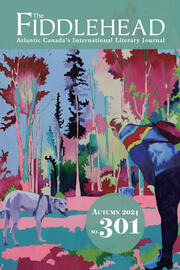excerpt from "The Fish and the Dragons"
China, at night, on the river. My grandfather was a master fisherman and he did it the old way, with cormorants. Each night, fourteen dark birds perched on the gunwales of his wooden boat, not idle passengers, but crew as well. Often he took me with him. I stood in the bow and held the lantern to illuminate the water. Also to attract the fish. We would glide through gloom, quiet except for the dip of the long bamboo pole Grandfather used to propel us, the ruffle of stiff feathers, the hum of crickets on the far shore. Still except for the movement of the boat, the breeze against Grandfather’s loose shirt, stained pants rolled to knee.
Fishing with cormorants took great skill and required the fisherman to trust his birds completely, as Grandfather did. With wrinkled hands he offered pieces of chopped carp, and their beaks snatched at him and asked for more. Even on their perches, wings tucked against sides, they scrutinized my grandfather with bright eyes. The birds looked for food perhaps, or attention, but I watched his slight figure with the fascination of a boy who has not known his father.
He began each night by tying snares around the birds’ necks to prevent them from swallowing the catch. To do this, he would hold the bird still and slip a knotted hemp rope around the base of its throat. Not so tight it couldn’t fish, but snug enough the catch remained trapped in the cavity below the beak. Thus outfitted, he released his birds to the river. Others chose to attach thin lines to the feet of their birds, but Grandfather’s cormorants didn’t require a tether. They swam wide circles around our boat and dived without warning. One moment bobbing on the surface and the next fully submerged. When they caught a fish, Grandfather guided them to the boat with his pole and forced the birds to regurgitate their prey by massaging their necks, thumbs pointed upwards. He kept the catch, rewarded the birds with a small piece of meat and sent them out again. We caught many fish this way.
When I was seven, Grandfather showed me how to gut carp. Despite the difficulty of working on an unstable surface, we did it onboard, while fishing. The 12 ft. vessel had wooden slats across the middle to provide structure, but still it wobbled. Flat-bottomed, only the ends of the boat curled away from the water. Not sea-worthy, but sufficient for our placid river. Grandfather held the slimy fish in his hand to demonstrate. Its recent death still perfumed the air around us, the scent of fresh fish before any hint of decay could mar it, strangely appealing. The birds continued to circle the boat. Unrelenting in their pursuit, they appeared and disappeared, like visitors in a constant state of flux. I could not keep track of their movements nor discern any semblance of pattern. “Always keep your knife sharp,” Grandfather said. “The cuts must be clean.” He gutted quickly, without looking and made only the essential slits. His hands moved with casual confidence and economy developed after years of repetition. Finished, he doused the flayed fish in a bucket to clean the blood. “See,” he said. “Easy.”
Not easy. The fish nearly slipped from my hands when Grandfather passed it to me. I propped it between my knees. The knife went in smoothly. With blade in fish and wooden grip in hand, I felt like a seven-year-old assassin. Shadowy as a legend, perhaps on a quest from a long dead emperor. I looked towards Grandfather for approval, but he was intent on his work, pulling a bird back to the boat with his pole. He looked old and crooked, next to that fishing pole. Bent back, white hair, and teeth blackened at the gums. All of him was wrinkled and I wondered, perhaps as you wonder about me now, how long he would last. I pushed the knife too hard. It slid through white carp flesh and into my thumb. The fish fell from my hand. Hot blood dripped on the wooden slats and spattered at my feet.
Grandfather abandoned his bird and grabbed my hand. Squinting, he pulled the cut open and examined it under yellow lamplight. “Suck on it,” he said. “It’s not bad.” In my mouth the metallic tang of blood mingled with fish slime against my tongue. I wanted to gag. Grandfather retrieved my half-cleaned fish and rinsed it in the bucket. He finished gutting the fish. One cut along the belly and innards flicked out with bare hands. “If your knife is sharp, you must be controlled in your movements,” he said. “That is the other thing to remember.” I sat on the floor of the boat, thumb in mouth, and nodded. My finger throbbed and I longed to go home, but dared not mention discomfort. Satisfied I wasn’t seriously hurt, Grandfather ignored me and continued to fish. The cormorants swarmed him, their throats distended, and clamoured for attention. He turned and drew each onto the deck one at a time, removed their fish, and sent them back to the river. Clipped wings beat against the surface of the water and disrupted the night sounds, masked the cricket’s song. Around and around the boat they circled, like the sky that swirled above our heads. Like constellations pivoting on a fixed point.
Grandfather was not a man to talk, but during the years I fished with him, he taught many things. Practical knowledge he gave by example and expected me to absorb through observation: How to handle the cormorants and how to bargain for the best price at the markets. How to propel the boat in a straight line and how to perform basic maintenance and upkeep. Useful information for a time we both knew would come, a time when he would be gone.
Sometimes though, when the night was particularly slow, or he felt urged by the changing seasons, he told stories. Stories of my great grandfather’s grandfather and the ancient emperors. Stories from before. He pointed at the sky with lined, calloused hands and showed the Milky Way — not simply a far-flung arm of our galaxy, but the celestial river that separates the Weaving Maiden from her Cowherd. It glimmered from the distance as I floated on my own river. Another time, when the autumn moon shone brightest and coldest, he spoke of Jade Rabbit. With mortar and pestle, the rabbit grinds the elixir of immortality for the Moon Goddess Chang’e. My naked eyes searched the craters of the moon and I traced the outline of long ears on the glowing surface. Maybe I imagined. One night, as he gutted an especially beautiful fish, he told me how long long ago, a carp triumphantly swam up a great waterfall and leaped over the Dragon’s Gate. Grandfather re-enacted the scene with the fish in his hand. I didn’t even notice him moving the fish, invisible and hidden in the background. I saw only the carp, not dead, but resurrected and glorious, pushing against the current of the Yellow River. Because of his strength and bravery, the fish was transformed into a dragon. A scaly and powerful one, long-whiskered and yellow-bellied, equally at home in the water and the sky. Grandfather told these stories with a low cracking voice and animated eyes. Stories of magical times that were slipping away, slowly obscured by the dust of a changing world.
. . .












Comments
Beautifully evocative story.
Captivating!
Add new comment